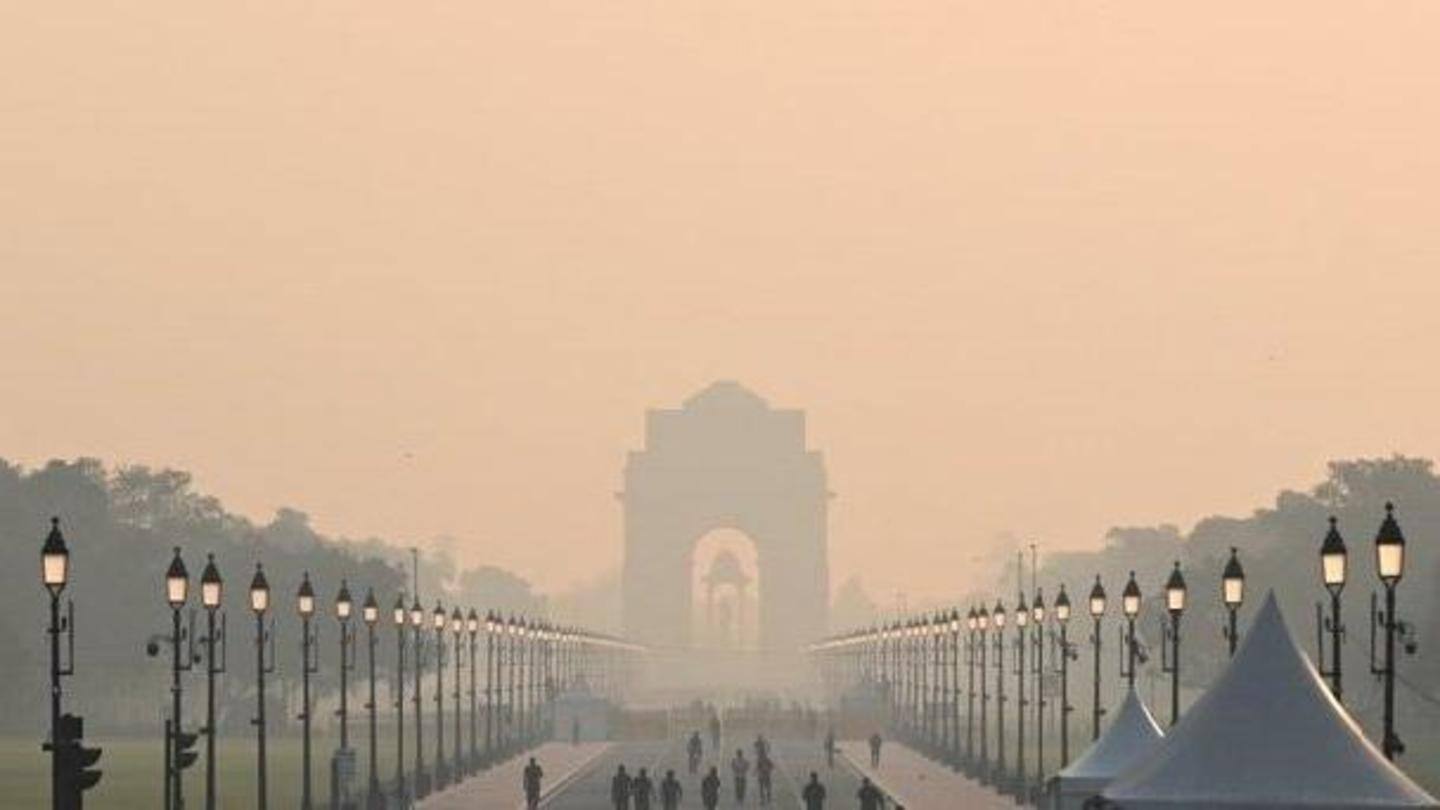
Delhi's air quality poor post Diwali; respiratory illness, allergies spike
What's the story
Despite being enveloped in smog, the air quality in Delhi NCR improved to 'poor' on Wednesday after dropping to the 'very poor' category after Diwali.
However, with quality still being in a poor state, it isn't getting any better for people.
Cases of breathlessness, cough, respiratory illnesses, and allergies have surged, and doctors are flooded with emergency cases, reported News18.
Context
Why does this story matter?
Delhi is among the world's most polluted cities, presenting a major health risk for its nearly 30 million residents.
Both city and central governments have been repeatedly pulled up by the Supreme Court to implement anti-pollution measures.
Notably, Delhi's air quality turns hazardous every winter due to industrial and vehicular pollution, stubble burning, and bursting of firecrackers, among other reasons.
Information
PM2.5 prime cause of respiratory problems
The concentration of ultra-fine particulate matter (PM) of diameter 2.5 micron or less in the air has leaped exponentially, which is constituted by harmful heavy metals and toxic compounds.
Apart from itchy throat and eyes, patients have complained of increased cough, and chest congestion, said Dr. Avi Kumar, senior consultant, pulmonology, at Fortis Escorts hospital in New Delhi.
Details
Long COVID patients need to be cautious
Patients are at an increased risk of lung infections and pneumonia as the condition of those suffering from asthma, chronic obstructive pulmonary disease (COPD), and interstitial lung disease has worsened.
Doctors have warned that the condition of patients with pre-existing conditions such as severe post-COVID complications could exacerbate due to air pollution.
Poor air quality weakens the immune system, degrading people's overall health.
Other problems
Increased risk of diabetes, heart problems
As per experts, the effects of air pollution are limited not only to respiratory diseases but also give rise to problems such as insulin resistance—making patients susceptible to diabetes, heart diseases, and even stroke.
Dr Raj Kumar, consultant, of internal medicine at Indian Spinal Injuries Centre, Delhi said apart from the respiratory department, other outpatient departments (OPD) are also reporting similar problems in patients.
Eyes
High risk of eye problems
Observing a rising trend of eye problems related to high levels of pollutants, ophthalmologists have warned against going out without sunglasses.
The concentration of sulfur oxides and nitrogen oxides in the air makes the tear film of our eyes acidic, leading to conjunctivitis and problems in the cornea, affecting vision.
Doctors advise washing the eyes at regular intervals and avoiding wearing contact lenses.
Fertility
Air quality depleting reproductive health
Fertility problems are cropping up as deteriorating air quality is reducing sperm count to even lesser levels than required for conceiving.
Dr Gunjan Gupta Govil, founder and chairman, Gunjan IVF World Group said such air quality affects the reproductive health of women equally.
Prolonged exposure to air pollutants could alter the genetic makeup of the eggs and is linked to miscarriages.
Prevention
Sunglasses, masks, and balanced diet
Doctors advised avoiding public places and the use of air purifiers wherever possible.
Experts have recommended eating a well-balanced diet and consuming lots of fluids.
Get vaccinated against flu and pneumonia, if not already.
Wash your eyes regularly and avoid rubbing them. If needed, use lubricating eye drops prescribed by ophthalmologists to prevent dry eyes.
Masks are all the more important during these times.